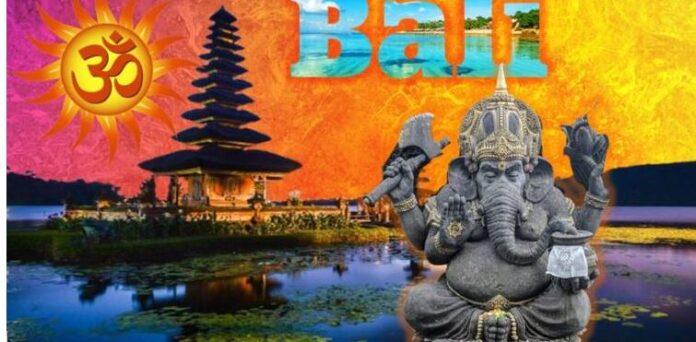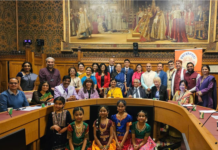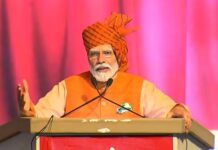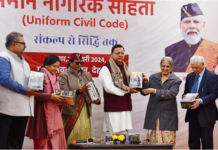Indonesia is predominantly a Muslim country with around 86% of the population practicing Islam, however, the island of Bali is a rare exception. More than 90% of the population on the tiny island practices Hinduism. Long before Islam came to Indonesia, Hinduism had reached the South East Asia country, and in particular, the island of Bali.
Kalinga was instrumental in shaping the history and culture of Indonesia, especially in the island of Bali. The maritime trade of Kalinga brought prosperity to the kingdom which could largely be attributed to overseas trade with distant lands like Indonesia.
The people of Kalinga maintained lasting commercial and cultural relationships with the Indonesian islands of Java, Sumatra, Bali, and Borneo, collectively referred to by some scholars as “Suvarnadvipa”.
The island of Bali formed the most attractive destination for the merchants of Kalinga. In this process, Odia culture, customs, religious beliefs, ideas, language, script, and manners were popularised on the island
Balinese Hindus worship several gods, but the holy trinity of Brahma, Shiva, and Vishnu is the most cherished one. H. B. Sarkar in his book titled “Some Contributions of India to the Ancient Civilization of Indonesia and Malaysia” published in 1970 says, “Indeed, all known gods of any importance in the Hindu and Buddhist pantheon of India had their heyday in Bali”
Indian influence in Bali:
Indian influence in Bali could be easily seen in the composition of works on astrology. Sanskrit also had a great influence on their language and literature. The Balinese, till today, celebrate Indian festivals like Maha Shivratri, Saraswati Puja, Durga Puja, etc.
The name Bali is said to have originated from the kingdom of the demon emperor Maha Bali, who had gifted away the entire world to Vamana Avatar of Bhagwan Vishnu. There are ample proofs to testify that the Hindu influence from India reached Bali because of trade relations between the two nations.
Recent archaeological discoveries indicate that the contact between India and Indonesia, particularly Bali, had been present at least since the beginning of the Common Era or CE. Discovery of rouletted glassware beads, semi-precious stone beads, potsherds with Kharosthi characters, etc. from Bali points to ancient cultural contact between Bali and different regions of India. The Hindu texts such as Vrihat Samhita and Kathasarita Sagar affirms trade relations between India and Bali since very early times.
The Brahmin priest in Odisha is known as ‘Panda’ whereas in Balinese temples, he is called ‘Padanda’ or “the holder of Dharmic Scripture”. Various forms of worship also shows similarity between the two regions.
One of such instances is the worship of Goddess Sri Devi (Bali) and Devi Maa Lakshmi (Odisha). Both Devis are associated with dhanya and tandula. People of both the regions worship a knotted bundle of paddy-sheaves paying their respect to both the Devis. In Odisha, this worship is performed on every Thursday in the month of Mārgaśirṣa, and is popular as Gurubara Manabasa.
There are more than 20,000 temples across the island; each one is associated with a specific characteristic such as the virtue of descent or geographical area. Despite being the largest Muslim country in the world, Indonesia’s currency displays Bhagwan Ganesha. In addition to that, the country’s official airline is named Garuda, which holds a major significance in Hindu culture and history.
Balinese and Odias have many similarities with respect to food habits. Both are fond of eating saga, especially sajana saga (young green leaves of drum-stick tree). Other favourite vegetables common to both include banana flowers (bhanda) and core stem (manja) of the banana plant.
The Balinese also serve their food on banana leaves, as in Odisha, Bengal and many south Indian regions. Similarly, cakes made out of rice-flour known as Manda Pitha and Enduri Pitha are also favourite dishes of both. The habit of chewing betel and keeping the ingredients in a wooden box are found in both the regions
Hindu university in Bali and a Krishna bhakt President:
Moreover, last year, Indonesia President, Joko “Jokowi” Widodo issued a Presidential regulation recently, which proclaims the Hindu Dharma State Institute (IHDN) in Denpasar, Bali into the first state Hindu University of Indonesia. The University has been named Gusti Bagus Sugriwa State Hindu University (UHN), after Sugriva, a character from the epic Hindu history of Ramayana.
In fact, the Indonesian President, Joko Widodo is himself a Bhagwan Krishna follower. When asked about who is his favourite superhero, he had answered “Krishna”, recognising how the Chakra made Bhagwan Krishna very powerful and how the Hindu God also happens to be very wise. He had also iterated how Bhagwan Krishna is considered very powerful in Indonesia, the world’s largest Island country.
As reported by TFI, Indonesia’s first President Sukarno’s daughter Sukmawati Sukarnoputri recently performed ‘Ghar Wapsi’ by returning to her Hindu faith. The founder of the Indonesian National Party (Partai Nasional Indonesia-PNI), Sukmawati is the third daughter of Sukarno and the younger sister of former president Megawati Sukarnoputri. It was her grandmother Ida Ayu Nyoman Rai Srimben who inspired Sukmawati to convert to Hinduism.
With such an astral connection to Hinduism, it wouldn’t be a hyperbole to suggest that Balinese Hindus are more Hindu that many Hindus here in India. The people on the island have not only kept their traditions alive, but they take immense pride in propagating the beauty of Sanatan Dharma, further.
(BY Abhinav Singh@TFI)

Readers like you, make ESHADOOT work possible. We need your support to deliver quality and positive news about India and Indian diaspora - and to keep it open for everyone. Your support is essential to continue our efforts. Every contribution, however big or small, is so valuable for our future.












Fascinating reading
Whether you’re visiting Cambodia or Thailand or surrounding countries there are countless examples of ancient structures Ilike temples and artefacts which prove beyond doubt Hindu connection with India
It’s also sad to know how the maunders managed to snatch our religion which ultimately led to downfall of those communities forced to convert and now at world stage causing more strife than peace